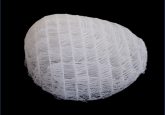Could phantom heads be the answer to MRI scanner calibration?

Phantoms play an important role in the scientific community, as numerical or physical models that mimic human characteristics. In a novel approach, researchers have 3D printed phantom heads as inexpensive tools for testing the effects of localized heating on the human head by MRI systems. Researchers at the University of Pittsburgh (PA, USA) have designed and 3D printed phantom heads for the testing of the whole-body 7 Tesla Magnetic Resonance Imager (7T MRI), being developed at the Radiofrequency (RF) Research Facility (University of Pittsburgh). Sossena Wood, a bioengineering PhD candidate (University of Pittsburgh) continues to work closely with Tamer Ibrahim,...





